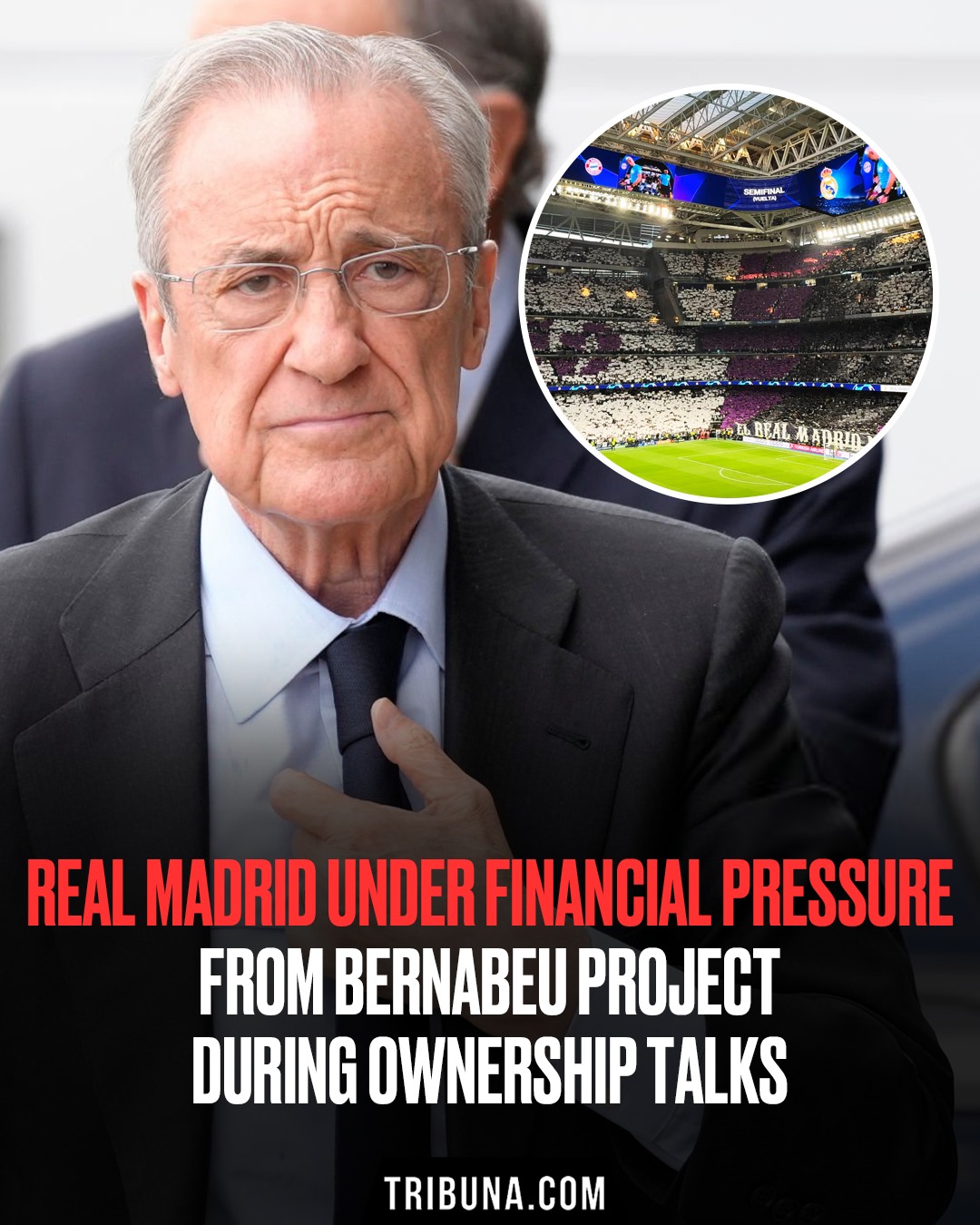Real Madrid are entering a critical period of financial and structural uncertainty as mounting costs from the Santiago Bernabeu renovation threaten to reshape the club’s future. According to ABC, internal reports suggest that the long-celebrated megaproject, once hailed as a symbol of Florentino Pérez’s vision, has become a growing financial burden that could force the club to consider changes to its ownership model.
The grand renovation of the Bernabeu was originally projected to cost €575 million when approved in 2019. However, unforeseen global inflation, legal battles, and project expansions have nearly doubled that figure to an estimated €1.3 billion. This massive escalation has placed unprecedented pressure on Madrid’s finances, with Perez’s board now preparing to address the issue during the upcoming general assembly on November 23.
The overruns stem from several factors — among them, new design improvements, delays caused by legal challenges, and rising material and labor costs. Moreover, the club’s attempts to diversify revenue through stadium events hit unexpected roadblocks. Noise complaints from local residents forced the suspension of concerts after only sixteen events, while court rulings halted construction on two planned parking facilities expected to generate €320 million over forty years.
Perez has publicly maintained that Real Madrid remain financially stable, emphasizing that the stadium debt, currently at €1.163 billion, is being managed independently from the club’s operating budget. Still, the losses in projected income and the spiraling renovation costs have ignited debate over whether the club’s traditional member-owned model can sustain its long-term ambitions.
To ease short-term liquidity pressures, Real Madrid struck a controversial deal with U.S. investment firms Sixth Street and Legends, selling a 20 percent stake in certain new stadium business ventures for €360 million. While this injection of funds provided breathing room, critics argue it effectively mortgaged part of the club’s future income. The board insists that this was a strategic move, not a loss of control, yet financial experts continue to question whether such deals blur the line between investment and debt.
The Santiago Bernabeu project, once seen as a crown jewel of modern football infrastructure, has evolved into a delicate balancing act between ambition and risk. What was meant to be a self-financing venture through expanded matchday revenues, VIP hospitality, and entertainment events is now under strain due to disrupted revenue flows and higher financing costs.
The upcoming assembly is expected to be pivotal. For the first time, discussions may openly include potential shifts toward a hybrid or partial ownership model — a move that would mark a seismic cultural change for the club. Real Madrid’s member-based system has stood for more than a century as a point of pride, symbolizing independence from external investors. However, with spiraling costs and the global football economy shifting toward corporate-backed ownerships, the pressure to modernize is growing.
Perez faces an unenviable challenge: maintaining Real Madrid’s traditional values while ensuring the financial viability of its grand vision. Insiders suggest he may use the assembly to present a roadmap for refinancing portions of the stadium debt or proposing a more flexible membership-investor structure to attract sustainable capital without full privatization.
Meanwhile, Madrid’s financial planning remains focused on maximizing the stadium’s commercial potential once construction concludes. Efforts are underway to reconfigure hospitality services, host premium non-football events, and expand global partnerships. Yet, with the cancellation of concerts and parking development delays, even these alternative revenue streams are now under review.
Fans remain divided. Traditionalists fear that shifting toward external ownership risks diluting the club’s soul, while pragmatists argue that financial modernization is essential to compete with state-backed giants like Manchester City and PSG. The debate has sparked intense discussion across Spanish media and among club members ahead of the decisive assembly meeting.
As Real Madrid prepare to present their record €1.25 billion budget for the 2025–26 season, one thing is clear — the Santiago Bernabeu megaproject, once envisioned as the foundation of a new golden era, has become both the club’s greatest achievement and its greatest financial test. The outcome of the November assembly could determine not only how Real Madrid navigates its immediate challenges, but also whether it remains a fan-owned institution or transitions into a new era of shared control.
For now, Perez’s message remains consistent: Real Madrid will emerge stronger. But with debts climbing, projects stalling, and public scrutiny intensifying, even his unwavering confidence will soon face the ultimate test — convincing Madridistas that progress doesn’t mean surrendering identity.


